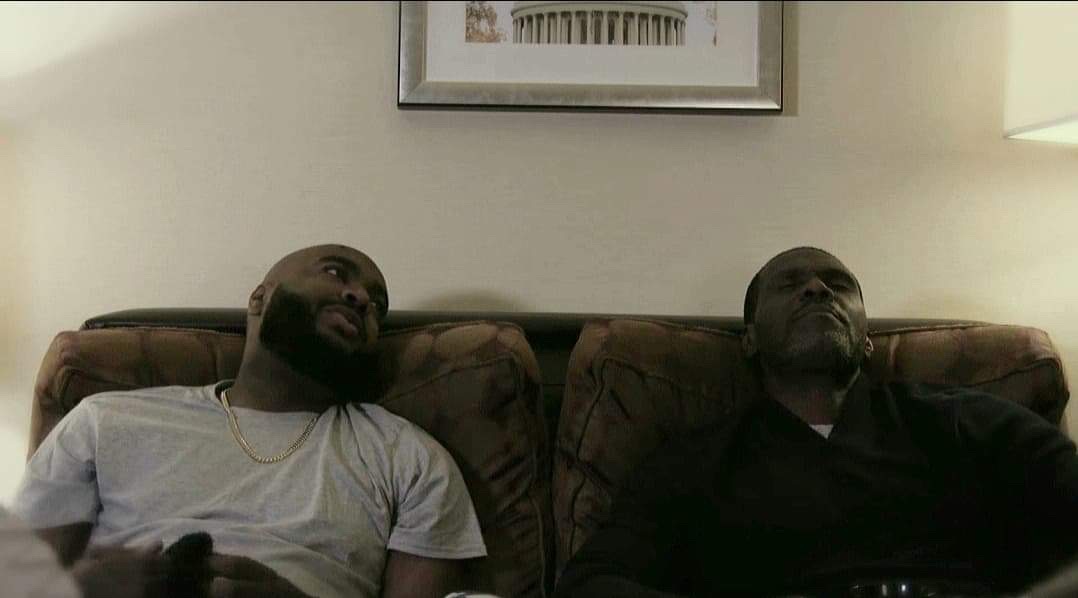
The onset of treatment with a therapist can be intimidating. Starting sessions with a stranger, getting to know the therapist’s style and being asked to share personal feelings can feel intrusive. At these times, patient’s can question what is the point of therapy, what will come of it and wonder whether any benefits will be yielded from the invitation to discuss emotions. Counselor, an original series created by Emmy nominated producer Harold Jackson III starring Curtiss Cook and Chad Eric Smith portrays the discomforts found in the progression of a therapeutic relationship between a recently released male convict in the infancy of court mandated treatment and highlights a number of these dynamics.
“Usually, something occurs that serves as the precipitating event for which an individual seeks psychotherapy. This event, usually traumatic…” (Jones & Gray, 1983, p. 82) can leave one feeling vulnerable and needing to seek support from a professional who can help lessen the negative feelings felt. These experiences that are painful and conflictual are the “substance of psychotherapy” (Jones & Gray, 1983, p. 82). As such, beginning therapy would suggest that one is ready and willing to be open to discuss what causes their pain. However, when sitting in front of a mental health provider and asked to disclose distressful events that have caused a disturbance in one’s ability to function can cause a novice patient to feel uneasy.
“Unquestionably, there is a consistent plea from the patient for the therapist to pause and ‘listen to me, learn about me and my struggle’” (Carter, 1979, p. 1007). This plea is not always extinguished when patients arrive to therapy and outright state their lack of desire to engage in building a therapeutic relationship with a therapist. Rather, the resistance from a patient may communicate a protective message that can be translated to be understood as, “I am scared. I don’t know what to do in therapy. I am unsure about therapy. If you get to know me, will you accept me or will you reject me?” One additional question that may come to mind includes, “Can you really help me?”
“The challenge for the therapist, then is to instill trust in this extremely delicate patient-therapist relationship without tiring or losing patience” (Carter, 1979, 1008). The professional must keep in mind the multitude of concerns a patient possesses that makes it difficult to feel safe and connect. Counselorbroaches many of these variables and takes it a step further to explore working with patients to navigate their current situations, examine the boundaries between a counselor and the patient and consider how professionals treat individuals when they are riddled with personal conflicts that can interfere with providing a therapeutic environment.
Have you ever continued with therapy and found it sad to say goodbye? Were you proud of yourself for completing the work? Did you feel that you had a good experience and relationship with your therapist? Did you feel better equipped at handling life’s circumstances? Though it can be anxiety-provoking to trust and engage in the work of self-discovery and healing; with perseverance there are significant benefits that may come with doing so, which includes rebuilding belief in oneself.
To follow David (performed by Chad Eric Smith) and Dr. Venahzen’s (acted by Curtiss Cook) therapeutic relationship visit:
https://www.youtube.com/watch?v=k_i9uJxNhc0
https://www.youtube.com/playlist?list=PLPCrvyN_DZgxI8faWyjLebAdv3YGXdfoF
References
Carter, J.H. (1979). Frequent mistakes made with black patients in psychotherapy. Journal of the National Medical Association, Vol. 71(10), 1007-1009.
Jones, B.E. & Gray, B.A (1983). Black males and psychotherapy: Theoretical issues. American Journal of Psychotherapy, Vol. 37 (1), 77-85.
Resources
Ross, William (2016). Counseling African American Males: Effective Therapeutic Interventions and Approaches. Information Age Publishing, Charlotte, North Carolina
Head, J. (2005). Black Men and Depression: Saving Our Lives, Healing Our Families and Friends. Harlem Moon, Broadway Books, New York, NY.
Ragland, M.T. ( 2014). Transition Therapy: Theory, Research, and Recommendations for Treating African American Males Experiencing Post-Incarceration Transition Syndrome. Author. North Charleston, SC.


